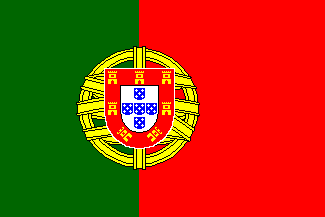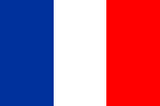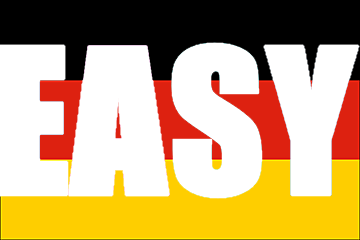| ICFCY-Code | Title | Description |

|
b1403
|
Sharing attention |
Mental functions that permit focusing on the same stimulus by two or more people, such as a child and a caregiver both focusing on a toy. |

|
b660
|
Procreation functions |
Functions associated with fertility, pregnancy, childbirth and lactation. |

|
b6602
|
Functions related to childbirth |
Functions involved during childbirth. |

|
b6603
|
Lactation |
Functions involved in producing milk and making it available to the child. |

|
d110
|
Watching |
Using the sense of seeing intentionally to experience visual stimuli, such as visually tracking an object, watching persons, looking at a sporting event, person, or children playing. |

|
d240
|
Handling stress and other psychological demands |
Carrying out simple or complex and coordinated actions to manage and control the psychological demands required to carry out tasks demanding significant responsibilities and involving stress, distraction, or crises, such as taking exams, driving a vehicle during heavy traffic, putting on clothes when hurried by parents, finishing a task within a time-limit or taking care of a large group of children. |

|
d315
|
Communicating with - receiving - nonverbal messages |
Comprehending the literal and implied meanings of messages conveyed by gestures, symbols and drawings, such as realizing that a child is tired when she rubs her eyes or that a warning bell means that there is a fire. |

|
d3150
|
Communicating with - receiving - body gestures |
Comprehending the meaning conveyed by facial expressions, hand movements or signs, body postures, and other forms of body language. |

|
d3152
|
Communicating with - receiving - drawings and photographs |
Comprehending the meaning represented by drawings (e.g. line drawings, graphic designs, paintings, three-dimensional representations, pictograms), graphs, charts and photographs, such as understanding that an upward line on a height chart indicates that a child is growing. |

|
d3502
|
Ending a conversation |
Finishing an interchange or dialogue with customary termination statements or expressions and by bringing closure to the topic under discussion. |

|
d3503
|
Conversing with one person |
Initiating, maintaining, shaping and terminating an interchange or dialogue with one person, such as in pre-verbal or verbal play, vocal or verbal exchange between mother and child, or in discussing the weather with a friend. |

|
d430
|
Lifting and carrying objects |
Raising up an object or taking something from one place to another, such as when lifting a cup or toy, or carrying a box or a child from one room to another. |

|
d4302
|
Carrying in the arms |
Taking or transporting an object from one place to another using the arms and hands, such as when carrying a pet or a child or other large object. |

|
d6600
|
Assisting others with self-care |
Assisting household members and others in performing self-care, including helping others with eating, bathing and dressing; taking care of children or members of the household who are sick or have difficulties with basic self-care; helping others with their toileting. |

|
d6605
|
Assisting others in health maintenance |
Assisting household members and others with formal and informal health care, such as by ensuring that a child gets regular medical check-ups, or that an elderly relative takes required medication. |

|
d7600
|
Parent-child relationships |
Becoming and being a parent, both natural and adoptive, such as by having a child and relating to it as a parent or creating and maintaining a parental relationship with an adoptive child, and providing physical, intellectual and emotional nurture to one's natural or adoptive child. |

|
d7601
|
Child-parent relationships |
Creating and maintaining relationships with one's parent, such as a young child obeying his or her parents or an adult child taking care of his or her elderly parents. |

|
d815
|
Preschool education |
Learning at an initial level of organized instruction in the home or in the community designed primarily to introduce a child to a school-type environment and prepare the child for compulsory education, such as by acquiring skills in a day-care or similar setting in preparation for school (e.g. educational services provided in the home or in community settings designed to promote health and cognitive, motor, language and social development and readiness skills for formal education). |

|
d940
|
Human rights |
Enjoying all nationally and internationally recognized rights that are accorded to people by virtue of their humanity alone, such as human rights as recognized by the United Nations Universal Declaration of Human Rights (1948) and the United Nations Standard Rules for the Equalization of Opportunities for Persons with Disabilities (1993); the United Nations Convention on the Rights of the Child (1989); the right to self-determination or autonomy; and the right to control over one's destiny. |

|
e1150
|
General products and technology for personal use in daily living |
Equipment, products and technologies used by people in their daily activities, such as clothes, textiles, furniture, appliances, cleaning products and tools, not adapted or specially designed, except as appropriate for age, such as utensils for children. |

|
e165
|
Assets |
Products or objects of economic exchange such as money, goods, property and other valuables that an individual owns or of which he or she has rights of use or rights of benefit, such as child support payment or wills for children or dependent persons. |

|
e310
|
Immediate family |
Individuals related by birth, marriage or other relationship recognized by the culture as immediate family, such as spouses, partners, parents, siblings, children, foster parents, adoptive parents and grandparents. |

|
e575
|
General social support services, systems and policies |
Services, systems and policies aimed at providing support to those requiring assistance in areas such as shopping, housework, transport, child care, respite care, self-care and care of others, in order to function more fully in society. |

|
e57500
|
Informal care of child or adult by family and friends |
|

|
e57502
|
Child or adult care service centre - profit and non-profit |
|


 =Select (and add) this code
=Select (and add) this code  Click on a code to expand the branch
Click on a code to expand the branch 


































